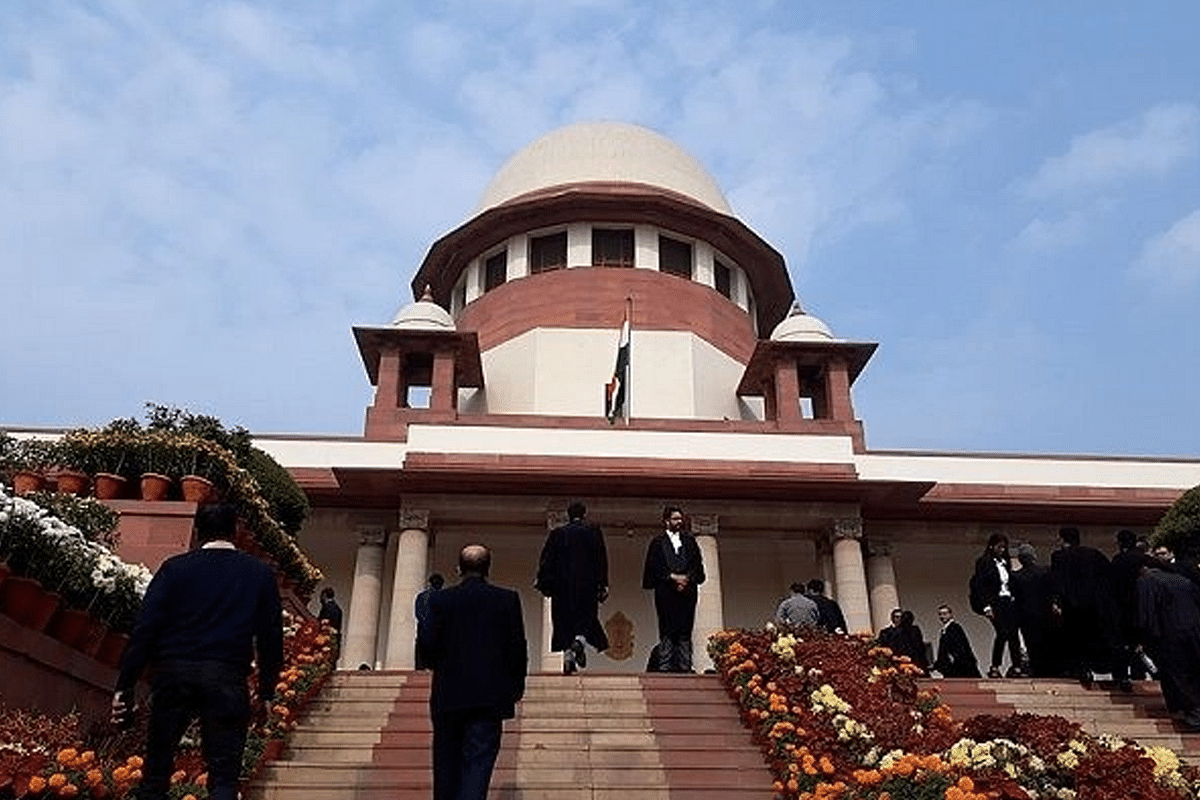News Brief
Supreme Court Rejects Request To Direct Army And Paramilitary Forces Over Deployment In Manipur, Stresses Importance of Civilian Control Over Them

The Supreme Court of India. (Wikimedia Commons)
The Supreme Court declined a request to direct the Indian Army and paramilitary forces in Manipur regarding security deployments.
Chief Justice of India D Y Chandrachud emphasised that civilian control over the armed forces is a fundamental aspect of democracy, and the court will not violate this principle.
Following the court's request for constructive suggestions, parties involved in the matter were asked to present their proposals.
During the proceedings, senior advocate Colin Gonsalves, representing tribal groups from Manipur, drew attention to what he believed were one-sided attacks on tribal communities.
Taking exception, the CJI said, “This can’t be the tenor of suggestions. For instance, you are asking the court to direct the Indian Army and paramilitary to take particular steps. Frankly…in the last over 70 years, the Supreme Court has not given directions to the armed forces…. One of the great hallmarks of democracy (is) civilian control over the armed force. Let’s not breach that. We will not do that. We are not going to issue directions to the Army."
In the latest status report filed by the state, the Manipur Chief Secretary's statement regarding the deployment of security forces was referred to by the court.
Both the Centre and the state government were directed by the court to ensure adequate arrangements for the protection of lives and property of all citizens and residents of Manipur.
Expressing concern, the Chief Justice of India stated that it would be risky for the court to determine the exact deployment of a battalion. The CJI emphasised that they were monitoring the situation and would not hesitate to issue calibrated orders if necessary, keeping in mind the scope of judicial review.
During the proceedings, Solicitor General Tushar Mehta objected to some of the submissions made by Gonsalves, which accused the Centre and the state.
The bench intervened and reminded Gonsalves that these were merely allegations, and it would be difficult to make progress if he claimed that certain terrorist organisations were aligned with the state and Centre, as the SG would not accept it.
The court requested Solicitor General Mehta to consider the suggestions put forward by advocate Mohammed Nizam Pasha, who represented the Zomi Students Federation of India.
The court further directed Mehta to take positive action on these suggestions within three days, before Friday, and submit an action taken report within a week.
Support Swarajya's 50 Ground Reports Project & Sponsor A Story
Every general election Swarajya does a 50 ground reports project.
Aimed only at serious readers and those who appreciate the nuances of political undercurrents, the project provides a sense of India's electoral landscape. As you know, these reports are produced after considerable investment of travel, time and effort on the ground.
This time too we've kicked off the project in style and have covered over 30 constituencies already. If you're someone who appreciates such work and have enjoyed our coverage please consider sponsoring a ground report for just Rs 2999 to Rs 19,999 - it goes a long way in helping us produce more quality reportage.
You can also back this project by becoming a subscriber for as little as Rs 999 - so do click on this links and choose a plan that suits you and back us.
Click below to contribute.
Latest